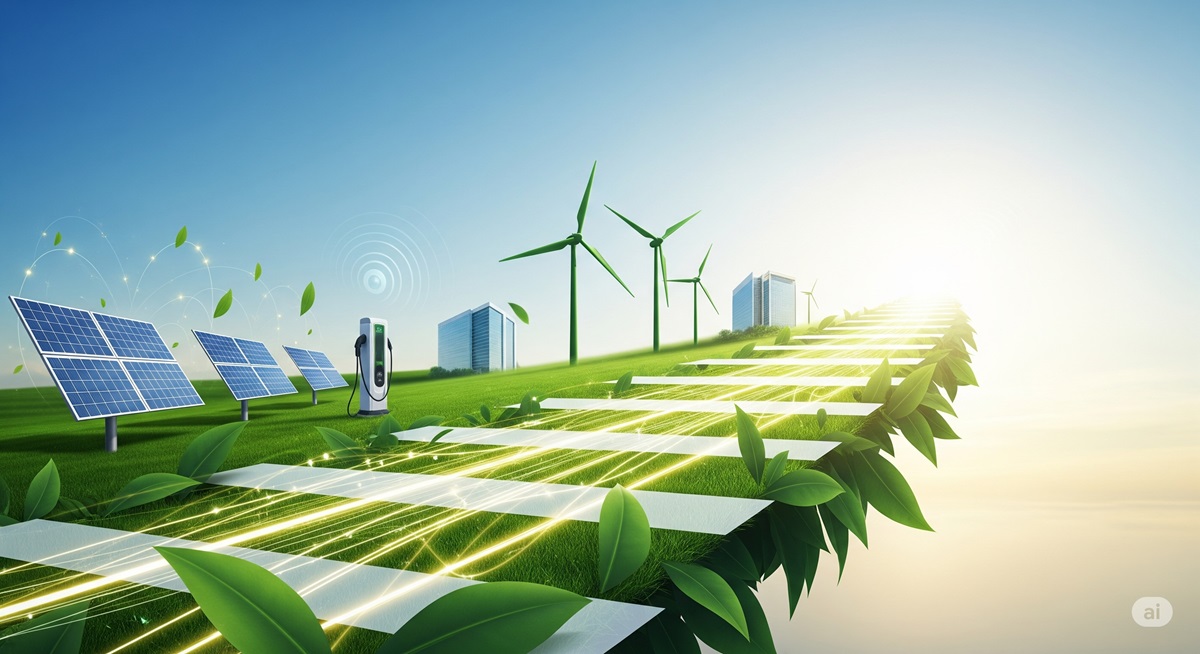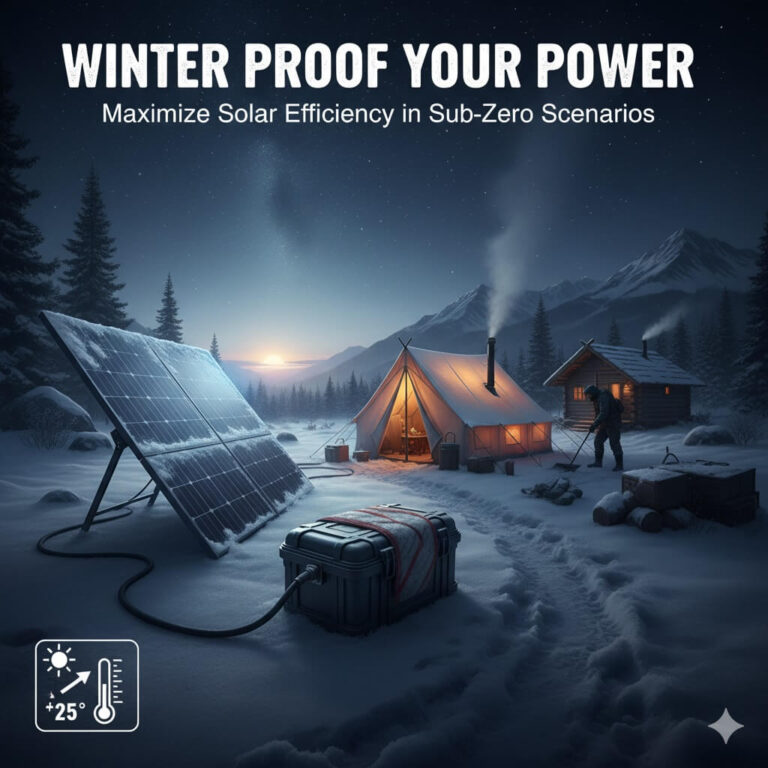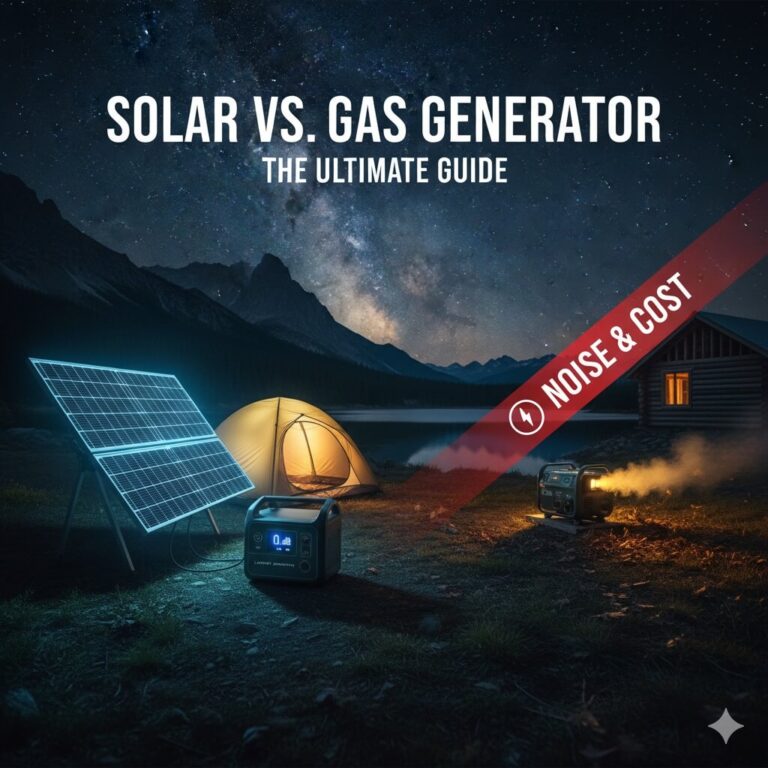How to Start a Green Energy Business: Your Step-by-Step Guide to a Sustainable Venture

The global landscape is undergoing a monumental shift towards sustainability, driven by urgent environmental concerns and a growing demand for cleaner, more efficient energy. This pivot isn’t just an ecological imperative; it’s an unprecedented economic opportunity. For aspiring entrepreneurs, the call to action is clear: green energy business ideas are emerging as one of the most promising and profitable frontiers for innovation and growth.
Imagine building a venture that not only generates revenue but also contributes positively to the planet’s health and future. This is the promise of sustainable entrepreneurship in the energy sector. This article serves as your comprehensive, step-by-step guide to a sustainable venture, providing actionable insights to navigate this exciting industry. You’ll learn how to identify your niche, craft a robust business plan, secure essential funding, ensure legal compliance, build genuinely sustainable operations, effectively market your mission, and assemble a passionate team. Let’s embark on your journey to powering a greener future.
- 1. Why Now? The Green Energy Market Opportunity Explained
- 2. Finding Your Green Niche: Profitable Ideas for Sustainable Ventures
- 3. Laying the Foundation: Crafting Your Green Business Plan
- 4. Legal & Licenses: Navigating the Green Energy Regulatory Landscape
- 5. Fueling Your Vision: Funding Strategies for Green Startups
- 6. Sustainable Operations & Technology: Beyond Just the Product
- 7. Marketing Your Mission: Attracting Eco-Conscious Customers
- 8. Building Your Sustainable Dream Team: Expertise & Passion
- Conclusion: Your Impactful Journey Towards a Greener Tomorrow
- Frequently Asked Questions (FAQs) About Starting a Green Energy Business
- Q1: What are the most profitable green energy business ideas right now?
- Q2: How much capital do I need to start a green energy business?
- Q3: What licenses or certifications are required for a green energy business?
- Q4: How can my green energy business stand out in a competitive market?
- Q5: What are the biggest challenges for new green energy startups?
1. Why Now? The Green Energy Market Opportunity Explained
The question isn’t whether the green energy market is growing, but how rapidly. This acceleration makes it an ideal time for new ventures.
- Rapid Market Expansion: The global renewable energy market is on a steep upward trajectory, projected to surge from $1.1 trillion in 2023 to over $2.5 trillion by 2032, demonstrating an impressive Compound Annual Growth Rate (CAGR) of 9.4%. Some optimistic forecasts even see it surpassing $4 trillion by 2037. This isn’t just growth; it’s an explosion of demand.
- Dominant Energy Source: The International Energy Agency (IEA) predicts that renewables are set to account for nearly 90% of global electricity growth by 2025. This signifies a fundamental shift in how the world powers itself.
- Driving Factors: This boom is fueled by a confluence of powerful forces:
- The global urgency to mitigate climate change.
- A heightened focus on energy security and independence.
- Dramatically falling costs of renewable technologies (e.g., solar photovoltaic (PV) costs have plummeted 82% over the last decade).
- Strong governmental support and burgeoning incentive programs worldwide.
- Untapped Potential: Despite this rapid expansion, vast opportunities remain in various sub-sectors, many of which are still nascent or underserved.
2. Finding Your Green Niche: Profitable Ideas for Sustainable Ventures
The “green energy” umbrella is vast, offering a multitude of profitable green business ideas. Choosing the right niche is crucial for success. Look beyond the obvious to find your unique space.
- Solar PV Installation & Maintenance: Still a cornerstone. Beyond new installations, consider specialized maintenance, cleaning, or optimization services for existing systems (residential, commercial, or utility-scale).
- EV Charging Infrastructure: With the electric vehicle revolution in full swing, demand for residential, public, and commercial fleet charging stations is skyrocketing.
- Energy Auditing & Eco-Consulting: Help homeowners and businesses identify energy waste, recommend efficiency upgrades, and navigate the transition to renewables.
- Energy Storage Solutions: As solar and wind power expand, grid stability becomes paramount. Opportunities exist in developing and installing battery systems for homes, businesses, and even grid-scale applications.
- Green Building & Retrofitting: Specialize in sustainable construction materials, energy-efficient upgrades for existing structures, or consulting services for green building certifications (e.g., LEED).
- Waste-to-Energy Solutions: Explore technologies like anaerobic digestion to convert organic waste from farms, restaurants, or municipalities into biogas or electricity.
- Sustainable Packaging: Develop and supply innovative, eco-friendly packaging materials (biodegradable, compostable, recycled, reusable) for a growing market demanding greener alternatives.
- Smart Grid & Energy Management Software: Leverage AI and IoT to create solutions for optimizing energy consumption, managing smart grids, and providing data analytics for renewable energy projects.
- Green Hydrogen Production: Though emerging, green hydrogen offers significant long-term potential for decarbonizing heavy industry and transportation.
- Community Renewable Projects: Facilitate local ownership and development of solar or wind projects, appealing to environmentally conscious communities.
To identify your niche, assess your personal skills, local market demand, existing competition, and, most importantly, your passion for that specific area within green energy.
3. Laying the Foundation: Crafting Your Green Business Plan
Every successful venture begins with a solid plan. A well-researched green business plan is your roadmap, guiding your strategy and attracting investors.
- Essential Components of a Robust Plan:
- Executive Summary: A concise, compelling overview of your entire venture.
- Company Description: Clearly articulate your mission, vision, and core values, deeply emphasizing your commitment to sustainability.
- Market Analysis: Detailed research on your target market, market size, growth trends, and a thorough competitive analysis, highlighting your unique competitive advantage.
- Products & Services: Define precisely what green energy solutions you offer, their unique selling propositions, and how you ensure quality.
- Sales & Marketing Strategy: Outline how you will reach, convert, and retain your eco-conscious customer base.
- Operations Plan: Detail your day-to-day activities, supply chain, equipment needs, facilities, and staffing.
- Management Team: Introduce your key personnel, highlighting their relevant expertise and roles.
- Financial Projections: Include startup costs, realistic revenue forecasts, profit & loss statements, cash flow analysis, and a clear breakdown of any funding you seek.
- Integrating Sustainability: Unlike traditional business plans, yours must seamlessly weave your environmental and social impact throughout every section. Demonstrate your commitment to the triple bottom line: people, planet, and profit. Show how your operations will minimize waste, conserve resources, and contribute positively to society.
4. Legal & Licenses: Navigating the Green Energy Regulatory Landscape
Navigating the legal and regulatory landscape is a critical step for any renewable energy startup, particularly in a sector with evolving rules.
- Choosing a Legal Structure:
- LLC (Limited Liability Company): Popular for its flexibility and liability protection.
- S-Corp/C-Corp: More suitable for ventures planning significant external investment.
- Benefit Corporation (B Corp): A legal structure for businesses committed to a specific social and environmental mission alongside profit.
- Essential Registrations:
- Register your business name at the state level.
- Obtain an Employer Identification Number (EIN) from the IRS if you plan to hire employees or operate as an LLC/corporation.
- Complete state and local tax registrations.
- Critical Licenses & Permits: These vary significantly by state, county, and your specific niche.
- State Contractor Licenses: Often required for installation services (solar, electrical, HVAC). Many states have specific solar contractor licenses or require a general contractor’s license that covers such work.
- Local Zoning & Building Permits: Essential for any physical installations or construction.
- Specialized Environmental Permits: Necessary for operations like waste-to-energy conversion.
- Industry Certifications:
- NABCEP (North American Board of Certified Energy Practitioners): This national certification for solar installers and salespersons is highly respected and often mandatory or preferred for projects to qualify for state incentive programs.
- LEED Certification: Important for consultants or contractors in the green building sector.
- Staying Current: The regulatory environment for green energy is dynamic. Subscribe to industry newsletters and legal updates, and regularly check state/local government websites.
5. Fueling Your Vision: Funding Strategies for Green Startups
Securing capital is often a significant hurdle for new ventures, but the green energy sector offers unique funding for green startups.
- Diverse Capital Options:
- Traditional Loans: From banks, credit unions, or SBA-backed loans.
- Government Grants: Federal agencies (e.g., Department of Energy, USDA), state programs, and local initiatives offer non-repayable grants for research, development, or deployment of clean energy technologies.
- Venture Capital (VC) & Private Equity: A growing number of firms specialize in clean tech or “impact investing,” seeking both financial returns and positive environmental/social impact (e.g., Breakthrough Energy Ventures, Green Angel Ventures).
- Impact Investors: Individuals or funds specifically prioritizing investments that generate measurable environmental and social benefits alongside financial returns.
- Crowdfunding: Platforms like Kickstarter or GoFundMe can be effective for community-based projects or direct-to-consumer eco-products, leveraging public interest.
- Green Loans/Bonds: Some financial institutions offer specialized loan products for sustainable projects.
- Tax Credits & Incentives: Leverage federal incentives like the Production Tax Credit (PTC) for wind or the Investment Tax Credit (ITC) for solar, as well as state-specific programs, which significantly improve project economics.
- Power Purchase Agreements (PPAs): For solar or wind developers, PPAs provide predictable, long-term revenue streams by contracting to sell electricity at a fixed price.
- Crafting a Compelling Pitch: Your funding proposal must not only demonstrate financial viability but also powerfully convey your environmental and social impact. Highlight market demand, your unique competitive advantage, and the expertise of your management team.
6. Sustainable Operations & Technology: Beyond Just the Product
To truly embody sustainable entrepreneurship, your commitment must extend beyond just offering green products or services. Your operational practices are equally crucial.
- Genuine Sustainability: Avoid “greenwashing.” Your business’s internal operations should reflect the environmental values you promote externally.
- Technology Sourcing: Choose the most efficient and environmentally friendly equipment and advanced renewable technologies. Research suppliers for their own sustainability credentials.
- Eco-Friendly Supply Chain: Prioritize suppliers who practice ethical sourcing, minimize waste, and have a low carbon footprint. Transparency in your supply chain builds credibility.
- Operational Footprint Reduction:
- Implement energy efficiency measures in your own offices or facilities (e.g., LED lighting, smart thermostats, insulation).
- Establish robust waste reduction, recycling, and composting programs.
- Practice water conservation.
- Utilize digital solutions to minimize paper usage and physical travel.
- Consider using renewable energy to power your own operations.
- Certifications for Operations: Pursue company-level certifications like B Corp, which rigorously verify high standards of social and environmental performance, public transparency, and legal accountability.
7. Marketing Your Mission: Attracting Eco-Conscious Customers
Effective marketing for a green energy business isn’t just about selling; it’s about telling a compelling story and connecting with eco-conscious consumers on a deeper level.
- Authenticity is Key: Your sustainability claims must be verifiable. Back up your assertions with data, certifications, and transparent practices to build trust and avoid greenwashing.
- Educate & Engage: Many potential customers are interested in green energy but may lack full understanding. Use your marketing to educate them on the specific benefits (environmental, financial, energy independence, health) of your solutions.
- Build Sustainability into Your Brand: Weave your eco-friendly mission, vision, and values directly into your company’s branding, visual identity, and messaging.
- Leverage Digital Marketing:
- Content Marketing: Create informative blog posts, videos, and infographics that explain green solutions, industry trends, and customer success stories.
- Social Media: Engage with eco-conscious communities, showcase your projects, and highlight your team’s commitment.
- SEO: Optimize your website for keywords like “renewable energy solutions,” “eco-friendly upgrades,” and “sustainable energy companies” to attract organic traffic.
- Email Marketing: Nurture leads with educational content and updates.
- Collaborate & Partner: Forge alliances with other eco-conscious businesses, non-profits, or community groups to expand your reach and enhance your credibility.
- Emphasize Value Beyond “Green”: While environmental benefits are core, also highlight long-term cost savings, increased energy independence, improved air quality, and other tangible advantages for your customers.
8. Building Your Sustainable Dream Team: Expertise & Passion
Your team is the engine of your sustainable venture. Building the right team is crucial for both operational success and embodying your green mission.
- Industry-Specific Knowledge: Recruit individuals with deep understanding of renewable energy technologies, market dynamics, and relevant policies. This includes engineers, technicians, and project managers.
- Certified Professionals: For technical roles (e.g., solar installers, energy auditors), prioritize candidates with industry-recognized certifications (e.g., NABCEP for solar). These certifications demonstrate competence and often meet regulatory requirements.
- Passion for Sustainability: Beyond technical skills, seek individuals genuinely committed to your environmental mission. This shared passion will drive innovation, foster resilience, and resonate powerfully with your customer base.
- Diverse Skill Sets: Balance technical expertise with strong business acumen, marketing prowess, sales capabilities, and excellent customer service skills.
- Culture of Learning: The green energy sector evolves rapidly. Foster a culture of continuous learning, adaptation, and innovation within your team to stay ahead of new technologies and trends.
Conclusion: Your Impactful Journey Towards a Greener Tomorrow
Starting a green energy business is more than just launching a company; it’s about pioneering a future where purpose and profit are inextricably linked. This guide has provided your step-by-step roadmap—from understanding the booming market opportunity and identifying your niche to crafting a robust green business plan, navigating legal complexities, securing vital funding for green startups, building truly sustainable operations, and effectively marketing your impactful mission.
Remember, true sustainable entrepreneurship extends beyond the eco-friendly products or services you offer. It demands embedding environmental responsibility, social impact, and transparent practices into every facet of your business. By doing so, you’ll not only contribute to a healthier planet but also build a resilient, respected, and highly profitable enterprise. The demand for green energy is only growing. Your journey to become a part of this vital transition starts now. Take the leap, build your sustainable venture, and help power a greener, brighter tomorrow.
Frequently Asked Questions (FAQs) About Starting a Green Energy Business
Q1: What are the most profitable green energy business ideas right now?
A: Highly profitable ideas include solar panel installation and maintenance, EV charging station development, energy auditing and consulting, energy storage solutions, and green building/retrofitting services.
Q2: How much capital do I need to start a green energy business?
A: Startup capital varies widely. Some consulting or online eco-product businesses can start with a low budget (a few thousand dollars), while installation or manufacturing ventures may require significant investment (tens of thousands to millions), often relying on loans, grants, or venture capital.
Q3: What licenses or certifications are required for a green energy business?
A: Requirements vary by state and niche. Common needs include general business licenses, state contractor licenses (e.g., for solar installers), and specialized permits. Industry certifications like NABCEP for solar professionals are highly recommended and sometimes mandatory.
Q4: How can my green energy business stand out in a competitive market?
A: Differentiate by focusing on a specific niche, offering innovative technology, providing exceptional customer service, building a genuinely sustainable and transparent operational model, leveraging strong local community engagement, and obtaining relevant certifications like B Corp.
Q5: What are the biggest challenges for new green energy startups?
A: Key challenges include navigating complex and evolving regulations, securing sufficient funding, intense competition in some established niches, rapid technological changes, and ensuring consistent supply chain sustainability.



